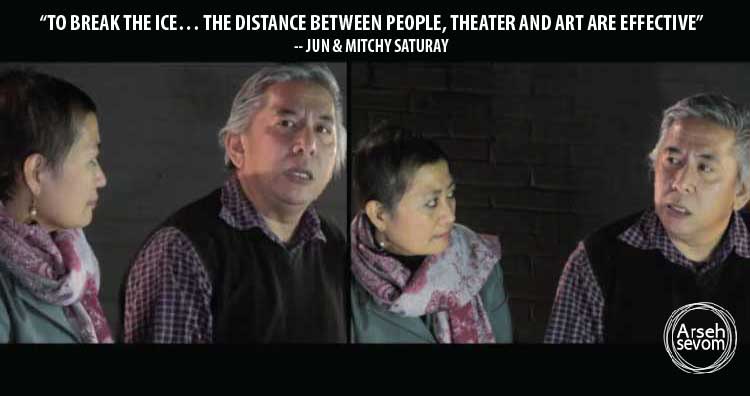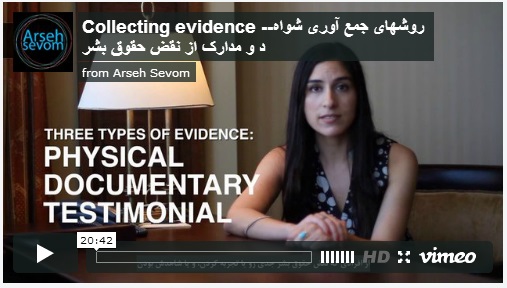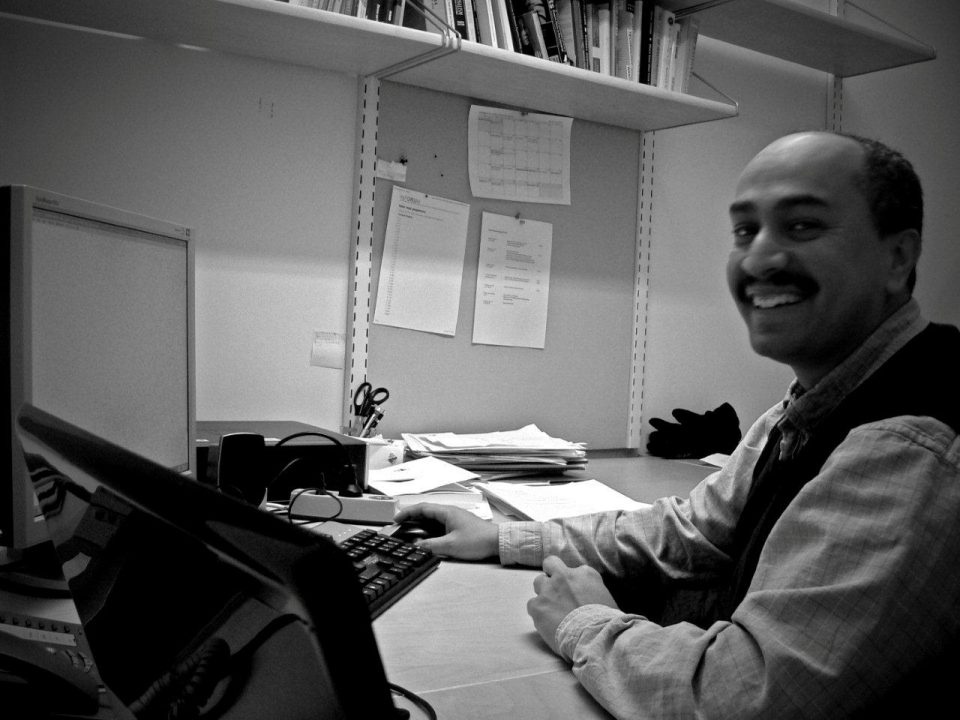
Letter of the President: Arseh Sevom Annual Report 2011
June 27, 2012
Prices Sky-Rocket, Concerts Cancelled, Show Us Your Papers, #SaveNarges
July 2, 2012This interview with activists Jun and Mitchy Saturay deserves focus for about 17 minutes. What they have to say about their experiences with activist theater in the Philippines is moving and fascinating. We look forward to following up with them further about the details of theater and activism.
Jun and Mitchy Saturay fell in love after Jun took a theater workshop from Mitchy. The two became active using theater to confront the Marcos dictatorship in the Philippines. With controls on freedom of speech and the media, “the only way to express oneself was through theater,” Jun explained.
“We would start mounting Shakespeare, Macbeth, and suddenly we see almost the situation that was happening in the Philippines. It was as if Shakespeare was there. It was as if Shakespeare was talking about the Philippines.”
The two worked with workers and farmers to present theater addressing the problems around them. “Theater became a venue where they [workers, farmers, and others] could interact and find solutions to their problems.”
Their work did not end with the fall of the Marcos dictatorship. When the family moved to one of the islands, they became active using theater to promote better health. In 1995, the government enacted the Mining Act, which allows 100% foreign ownership of mines. When nickel and other minerals were discovered on the island they lived on and a Norwegian mining company was given a license to explore, their work changed focus once again. They were asked by the locals to help them understand the ramifications of mining.
Jun and Mitchy combined their research with theater to act out what would happen as a result of the mining. “The effects were pulverizing the mountains, poisoning the seas,” Mitchy stated.
As a result of their work an Island alliance was formed and was able to get the local government to agree to a 25-year moratorium on mining.
This did not last. The national government overturned the moratorium saying it was against “national interests.”
Ten battalions of soldiers were sent to the islands to quash protests.
“They started killing the leaders,” Mitchy said. “Especially those against the mining. I remember we went to a far place, like the mountains, because we tried to evacuate when we received news everybody would be killed. It was like an exodus, like the Bible, because we were bringing out this big Mother Mary statue and doing some prayer meetings.”
Jun adds that the soldiers would disrupt any political activity, but showed respect to religious figures.
Despite their efforts to evacuate, fourteen leaders and activists were murdered.
It was during the funeral for a close friend who was murdered by security forces that Jun left the country to go to a conference abroad. He had wanted to stay, but friends urged him to bring the story of what was happening in the Philippines to an international stage.
On the invitation of Friends of the Earth, Jun embarked on a two-week trip that became a three-year separation from his family after Mitchy told him there were plans for his arrest and even murder. After three years the family settled in the Netherlands. Anti-mining and environmental activists continue to be murdered with impunity in the Philippines.
In 2007, a people’s tribunal was held in The Hague to hear evidence of disappearances, economic oppression, and state-sponsored murders in the Philippines. The report from the tribunal stated:
“Faced with the struggle to keep alive, farmers have organized themselves under the Kilusang Magbubukid ng Pilipinas (KMP, Peasant Movement of the Philippines) to claim their rights through the democratic process. This resistance is now faced with repression by the state through increased militarization of the rural areas. Statistics show that almost 60% of the victims of extrajudicial killings and forced disappearances are farmers, majority of whom are members of the peasant movement KMP. These killings of the peasant leaders are not isolated but planned and systematic. A campaign is carried out to slander the victim prior to the killing. No proper investigations are carried out and the Government remains in a state of denial. Meanwhile witnesses are threatened and thus the pattern of impunity reigns with no accountability.”
It hasn’t always been easy to tell the story of what is happening to communities in the Philippines. In the Netherlands, Jun began performing in the street again, first alone and then with other Filipino migrants.
“If you want to communicate with each other you need to talk in more cultural forms. To break the ice… the distance between people, theater and art are effective,” Jun said. He and Mitchy call theater and art a “weapon.” They add that it can’t be used alone, but as part of a struggle and collective action.
For more information:
- Theater of the Oppressed and Augusto Boal
- Bertolt Brecht
Report from the PERMANENT PEOPLES’ TRIBUNAL - Al Jazeera documentary: Mining the Last Frontier





